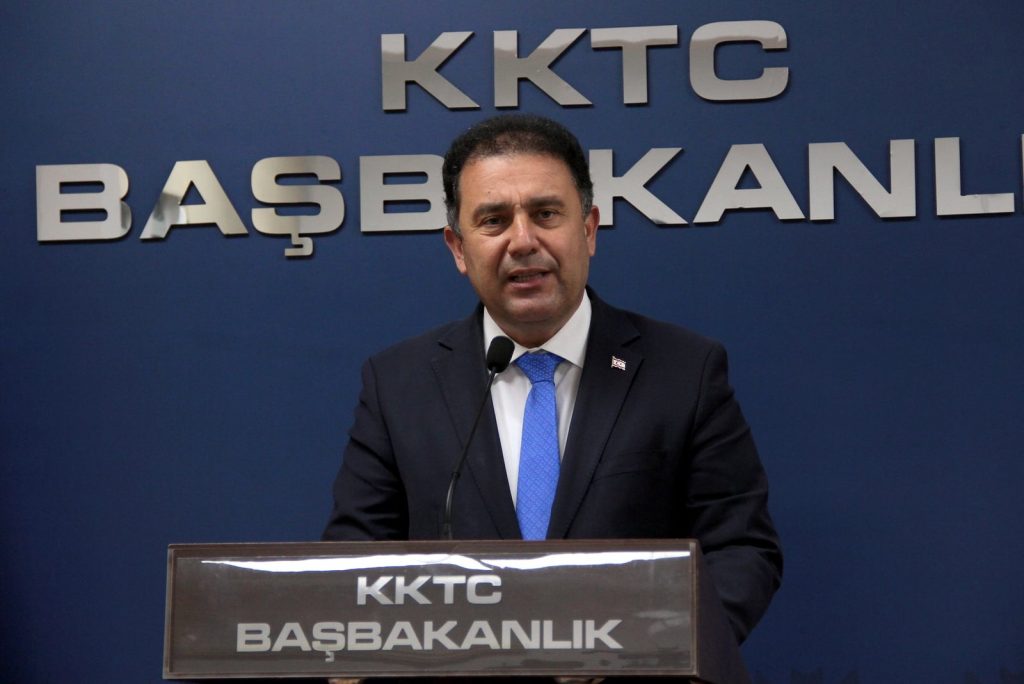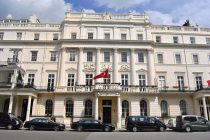I am an MBA student in a lesser known part of the world called the Turkish Republic of North Cyprus (TRNC). For those who have never visited, it is one of two states on the island of Cyprus, located in the Eastern Mediterranean.
On Friday, 19 February, 2021, the headline on a popular TRNC news platform read: “Health Minister Ali Pilli Dismissed from Post”. The sacking by Prime Minister Ersan Saner (pictured top) led to all sorts of reactions across social media, including a mass campaign to re-instate the health minister.
It is hard to say which was more triggering; the dismissal of the health minister, the name recommended for his replacement, Transport Minister Ünal Üstel, or both.
Dr Ali Pilli was one of the few minsters who retained his portfolio from the previous government. He had served in the cabinet led by the former prime minister – and now president – Mr. Ersin Tatar.
It was hoped that Dr Pilli’s experience and health qualifications would be enough to steer the country through the pandemic and what has now become a really difficult time for North Cyprus, especially economically.
Evidently, Dr Pilli’s approach was not deemed right and his eventual dismissal as health minister is a strong indication of what the future might hold in the Turkish Republic of North Cyprus (TRNC).
Beyond think pieces and statements calling him “a hero”, one of the things ex-Minister Ali Pilli is accused of is crippling the private sector with his ongoing strict “lockdowns”. Businesses have been shut down for weeks at a time, and vital incomes and jobs lost.
Data from the Turkish Cypriot Chamber of Commerce (KTTO) show that close to 1,000 business have shut down permanently and nearly 10,000 jobs have been lost. It’s likely these figures will be higher by the time the country fully re-opens.
In March 2020, the TRNC swiftly enacted a comprehensive lockdown as soon as the first cases of coronavirus infections were detected in the country. With limited health facilities and a genuine fear of this unknown virus, the priority was to protect the local population.
The first lockdown was hailed as a huge success; the TRNC became the first country in the world to win the war against Covid-19, reducing its cases to zero and losing only six people to the virus throughout all of 2020. But the cost of that victory was high.
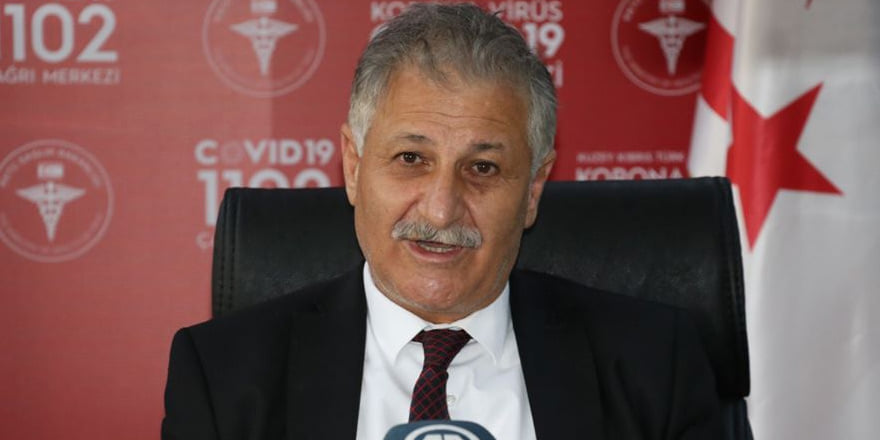
The first and second lockdowns, in place for most of 2020, had a devastating impact on the TRNC economy. Dr Pilli continually imposed curfews, and social and business restrictions to stem infection numbers. The arrival of the UK variant of the virus early in 2021 prompted yet another total lockdown.
It is unclear how the already battered Turkish Cypriot economy would survive, if businesses were expected to endure a new prolonged set of closures, hence Dr Pilli’s departure from the cabinet.
Covid-19 is known for escalating and aggravating pre-existing medical conditions. This phenomenon, as we have seen around the world, does not apply only to medical conditions, but also to economic and national problems as well.
It is therefore my personal opinion that the pandemic and lockdowns were not the cause of the TRNC’s current economic woes, but merely exacerbated them. If we analyse the factors correctly though, we can avoid a repeat of history. Here goes.
Before the pandemic – in 2019 and early 2020 – to the outside eye, the TRNC economy appeared to be doing well and growing. This, in my opinion was an illusion masking the real symptoms of decay; if you may, a pre-existing condition.
The state of the TRNC can be explained by looking at the recent experiences of international students in North Cyprus, which contribute to the second biggest sector in the country: higher education.
- The TRNC civil service and infrastructure were already stretched thin: from the country’s healthcare system to the police, those at the front line of delivering these essential public services were feeling the burden of working for a growing population with insufficient resources.
My fellow international students regularly complained of waiting lines at the hospital getting longer, and being referred to private hospitals and clinics for tests, Many found they had little or no access to public healthcare, despite paying for this service alongside their resident permits, and being charged for it by some universities.
Their needs were mostly ignored, and those students who could afford it, slowly and quietly began to move over to private hospitals for better care.
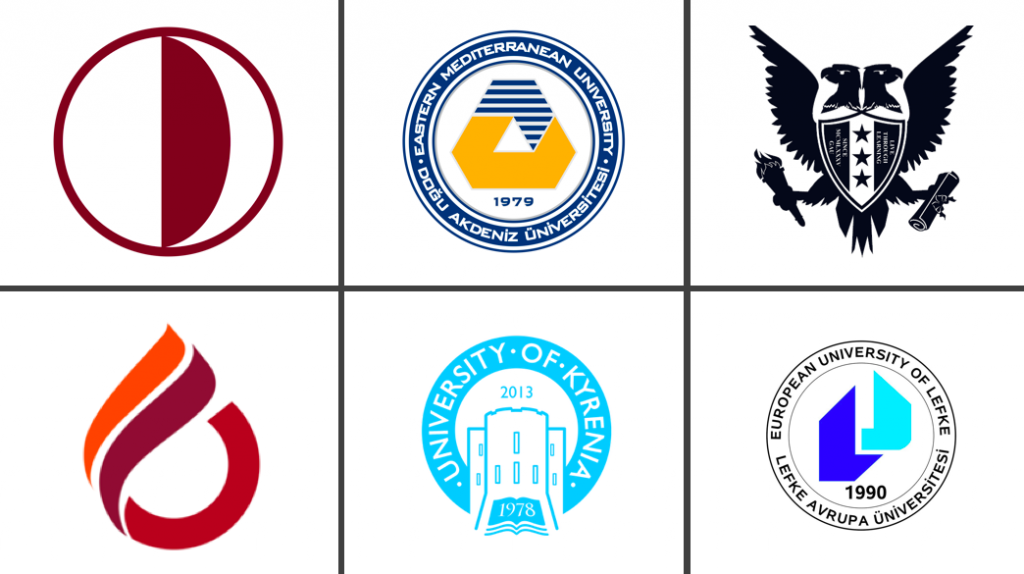
- Communication from the government was poor: this was evident in their health notices, only provided in Turkish despite repeated requests for English. While the TRNC authorities were quick to raise the price of resident permits, they failed to explain the rises to those most affected. It was usually half-hearted and poorly done.
International student body VOIS Cyprus eventually decided to fill in the gaps for international students by providing regular updates in English.
But we still don’t know, for example, whether foreign students will be given the Covid-19 vaccination as part of the TRNC government’s efforts to inoculate the country ahead of opening it up to tourism this summer.
- Many have come to the conclusion that international students on the island generally endure poor treatment, the consensus being that foreign students are regarded as “cash cows”.
I have previously written before about the dubious role of agents and their enrolment practices for TRNC universities. There has also been a well-publicised case about the tragic murder of a Nigerian student, Kennedy Dede. These all form a growing negative perception about studying in the TRNC.

In August 2020, Honourable Abike Dabiri, the Chairman of the Nigerians in Diaspora Commission (NIDCOM), released a press statement about the treatment of Nigerians in the TRNC, based on news the organisation had received about the harm coming to Nigerian students on the island. Despite containing many errors, and the statement being debunked for its false claims, the damage to the TRNC’s reputation was done.
In December 2020, the TRNC press also reported at least five countries had withdrawn their recognition for higher education degrees obtained from TRNC universities – Egypt, Iran, Iraq, Jordan, and the United Arab Emirates – effectively barring their citizens from schooling here.
Beyond some press statements and photo-ops at the TRNC Ministry of Education, nothing of substance is being done to repair this damage.
A major opportunity was missed to form the proposed committee comprising of representatives from North Cyprus’ large, non-Turkish-speaking international student community (numbering over 41,000) and the Ministry of Education. In short, there was no clear action plan to address the legitimate grievances of international students.
Interestingly, the TRNC press reported similar problems among foreign workers.
There continues to be no admission, let alone an investigation, by the Turkish Cypriot authorities as to why these poor perceptions and mistreatment persists. No one is even asking the question. Yet without these crucial steps, there can be no informed actions or solutions, let alone a reversal of the situation.
Instead, the Prime Minister Ersan Saner and his Education Minister Olgun Amcaoğlu have called for ‘a resumption of face-to-face classes’, in an urgent bid to secure the return of international students, which are vital to the TRNC’s economy.
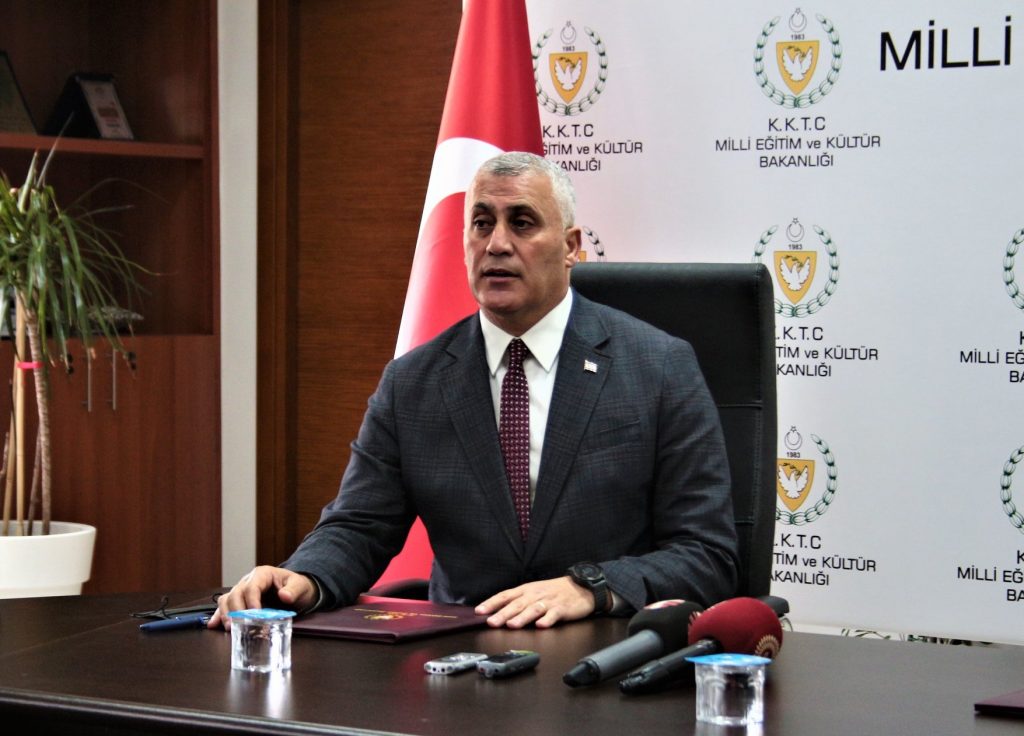
These are merely a few of the pre-existing conditions in the TRNC before and during the pandemic, which have become terribly aggravated and may escalate as we go on if we do not stop to fix these problems from the root source, as opposed to the present method of patching up the problems.
So, what do I propose?
While the country battles Covid-19, the economy and our collective future hangs in the balance. The country must think beyond ‘saving the day’, and plan long-term, so it can not only survive the pandemic, but move forward more confidently. Here are a few ideas:
- A National Strategy Conference: beginning this year, and held once every year, this event should be strategically focused, inclusive and representative of all TRNC stakeholders, from citizens, to students and foreign residents and workers alike. It should be an opportunity to discuss issues that affect us all, share ideas and formulate an effective strategy and shape policies we can all buy into.
It is about nation-building with a path to execution and implementation all the way to the national parliament. It starts with a clear path to surviving the challenges of the pandemic and onwards into the future.
- Alleviating the healthcare and social infrastructure shortfalls: there is a sizeable number of international students in the TRNC who study medicine, pharmacy, nursing and similar professions. It is unclear why the government has not hired directly from the universities and integrated them into its struggling healthcare system, especially as precious lives are lost and Turkish Cypriot healthcare professionals are overwhelmed.
Narrow, nationalistic mindsets have no place in 2021.
In several countries around the world, there is a policy that allows health professionals to be integrated into the national healthcare system in exchange for work permits and/or permanent residence permits. The TRNC government could look into existing policies and adapt them for use here in North Cyprus.
The TRNC can also borrow and adapt international best practice to solve the government’s poor local and international communications, and performance in other sectors.
- Funding the Turkish Cypriot government and public sector: The 2021 budget is worrying as it shows it is nearly impossible for the TRNC to meet its own public expenditures, with a shortfall reported annually for some time. The bloated public sector and huge pensions bill would be unaffordable for most governments.
The signs, like the other pre-existing conditions have been present for a while now. But maybe there is a way out and hopefully the government listens this time and makes required policy changes. If it won’t cut back its public sector, it must grow its income.
Visa laws in most countries are not set up to deal with this new generation of modern nomads, who are living and working remotely around the world. But that’s finally starting to change globally.
Over 20 countries and counting now have at least one version or the other of a ‘nomad’ visa, with more of them renewable and leading to either a permanent residence or even citizenship after at least 5 years of continuing work. The TRNC can tow this path to save the economy while boosting local businesses at the same time and here is how:
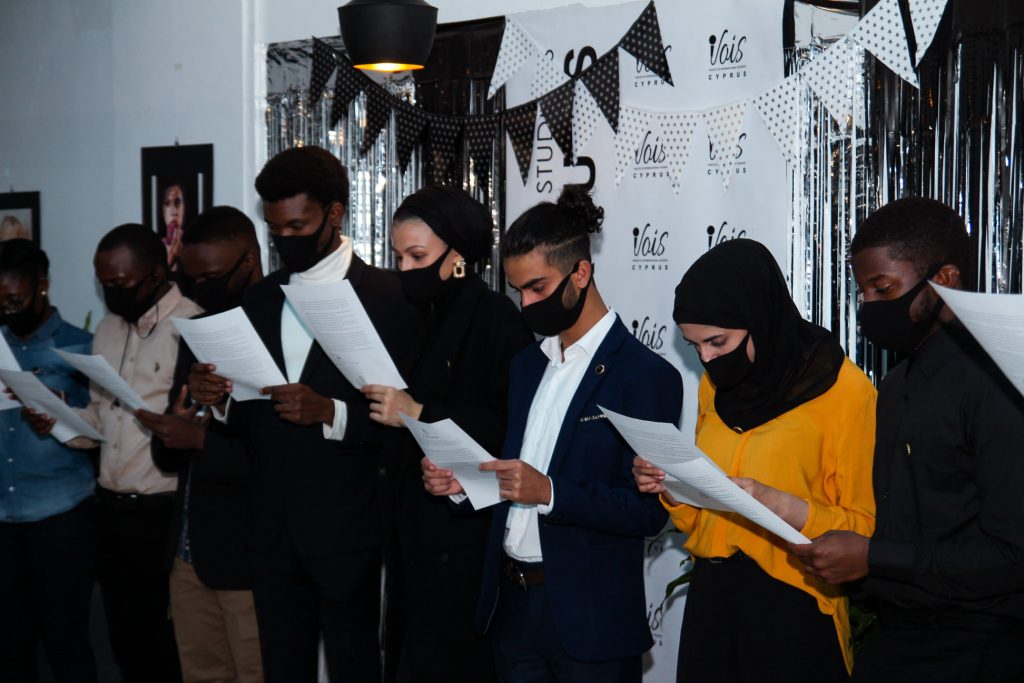
Phase 1: Remove the long restrictions on immigrants (including international students) and allow them to run businesses on the Island regardless of nationality.
It is not clear why registering and running a business is so difficult in the TRNC in 2021, especially as visa applications and approvals are now done entirely online. Also, statistics show that at least 26% of business started by immigrants are more likely to succeed than others. Immigrants generally bring new ideas, culture and solutions to doing things.
I also recommend that immigrants (including international students), who have been on the island for at least 5 years be issued permanent residence permits immediately their current permits expire. The government would swap one form of revenue – temporary residence permits – for another – permanent resident fees – while giving confidence to foreigners to invest in the TRNC, which would also increase revenues via future taxes. Happy and established foreigners act as a glowing reference to others.
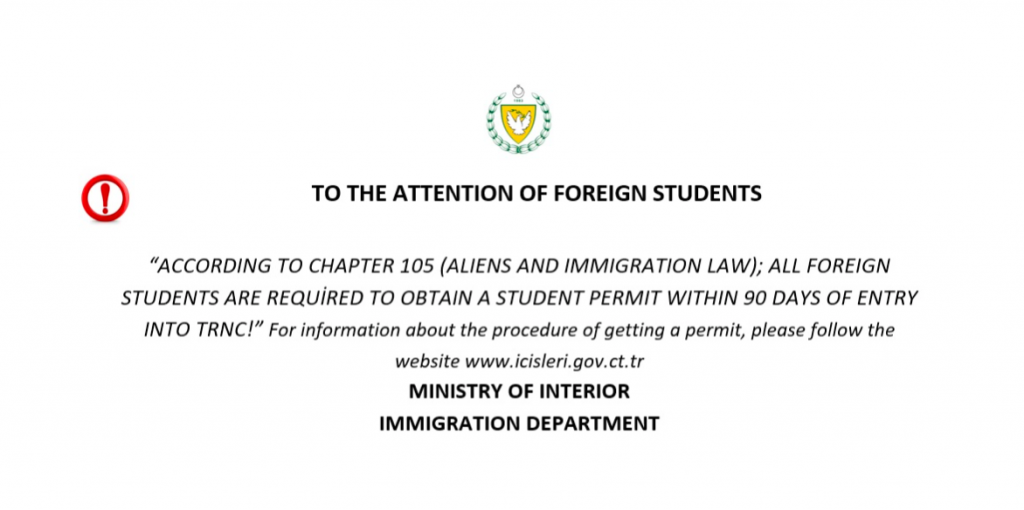
Phase 2: Once the first phase is completed and the handling of the Covid19 cases, quarantine, tracing, treatment and vaccination in the country has been stepped up (or else this effort will fail on the long term and the local pop will suffer greatly for it), the TRNC can then open this up to the outside world with terms and conditions in place.
These steps would create more wealth for the government and the residents while overcoming the negative economic effects of Covid19.
Like it was at the beginning, so it is now. The signs are there and Covid (especially the new variant) will escalate our pre-existing conditions further.
We can roll up our sleeves and get to work to protect our future, or keep patching things up and eventually the TRNC economy will end up needing palliative care.
It is a choice we have to make, and fast.


